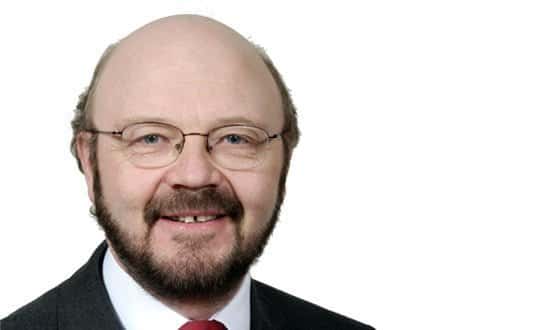UKCHIP with everything
- 16 February 2012

If you need radiotherapy in the UK, the consultant who prescribes your course of treatment will be registered with and regulated by the General Medical Council.
But the IT person who configures the software to fulfil the prescription and schedule the administration of your treatment is highly unlikely to be registered.
Of course, there are safeguards. Large UK cancer centres are regulated by the Care Quality Commission; they select their staff carefully; and they require them to keep up to date.
In extreme circumstances, they may dismiss somebody who is incompetent; but there is nothing to stop that person applying for another, similar job in healthcare or signing on with an agency to work as a locum.
“It’s bizarre,” says Mik Horswell, communications director of the UK Council for Health Informatics Professions, the voluntary register for people working in healthcare IT which marks its tenth anniversary this year.
“It’s bizarre that with the ever increasing reliance on technology to provide mission critical support to clinical care – through systems such as picture archiving and communications, prescribing, pathology and electronic patient records – relatively little concern seems to be displayed by NHS employers to ensure the professionalism of the staff members that make sure these systems function properly.
“It is our belief that increased professionalism leads to the delivery of better health informatics systems, with a consequent positive impact on patient outcomes.
“I personally believe that there is a need for increased professionalism in health informatics and have voluntarily registered with UKCHIP to demonstrate my commitment to the profession. I would challenge everyone who works in this arena to show their faith in the value of the profession to do so too.”
22,000 informaticians to go
UKCHIP estimates that around 30,000 health informaticians work in the NHS and a further 20,000 hold a variety of positions in industry, consulting and academia.
To date, only 800 have joined UKCHIP’s voluntary register, but the council believes that its arguments supporting registration are sound. It is in no mood to give up on the aim of achieving mandatory state registration similar to that applied to doctors, dentists, nurses and other frontline clinical professionals.
Indeed, it is gathering some powerful allies. The NHS Future Forum’s latest report on information summarises an important strand of UKCHIP’s argument very well: “Information for patients and service users is an integral part of care. Like medicine, good information can heal but poor information or poor handling of information can harm.”
The report later offers explicit support for the drive to accredit qualified health informatics professionals saying: “Organisations should support the development of professional informatics skills and behaviours, including encouraging accreditation of informatics professionals across the sector.
“This is particularly important where those specialist skills and competencies directly support health and social care practice.”
The NHS Future Forum’s pronouncements are important because they underline the need for professional regulation in settings outside ‘hands-on’ encounters with patients. Currently, regulation applies only to staff working directly with patients – doctors, dentists, nurses, physiotherapists and so on.
UKCHIP, and now the NHS Future Forum, argue that poor informatics can do as much harm as outdated surgical techniques or wrongly administered medicines.
It follows logically that people involved in the field need to be suitably qualified, updated and, if necessary, stopped from practising if their work or personal behaviour falls below the standards set for other practitioners with similar responsibilities.
And the big employers
UKCHIP has also been working with the Council for Healthcare Regulatory Excellence, the overseer of the nation’s nine health regulators. Besides scrutinising the work of the regulators, the CHRE is required to set standards for organisations that hold voluntary registers of practitioners, such as health informatics professionals.
An accreditation scheme for voluntary registers is planned later in 2012 and the draft standards are about to be published for public consultation.
Finally, UKCHIP has found a sympathetic hearing at the CQC, which is thinking of asking the NHS organisations it inspects to say how many of their informatics staff are registered with UKCHIP.
But Mik Horswell knows that the big breakthrough that is really needed is adoption by employers. A couple of large trusts or health boards agreeing to close their doors to unregistered staff, or an IT company with a household name requiring all relevant staff to be registered, would make a huge difference.




